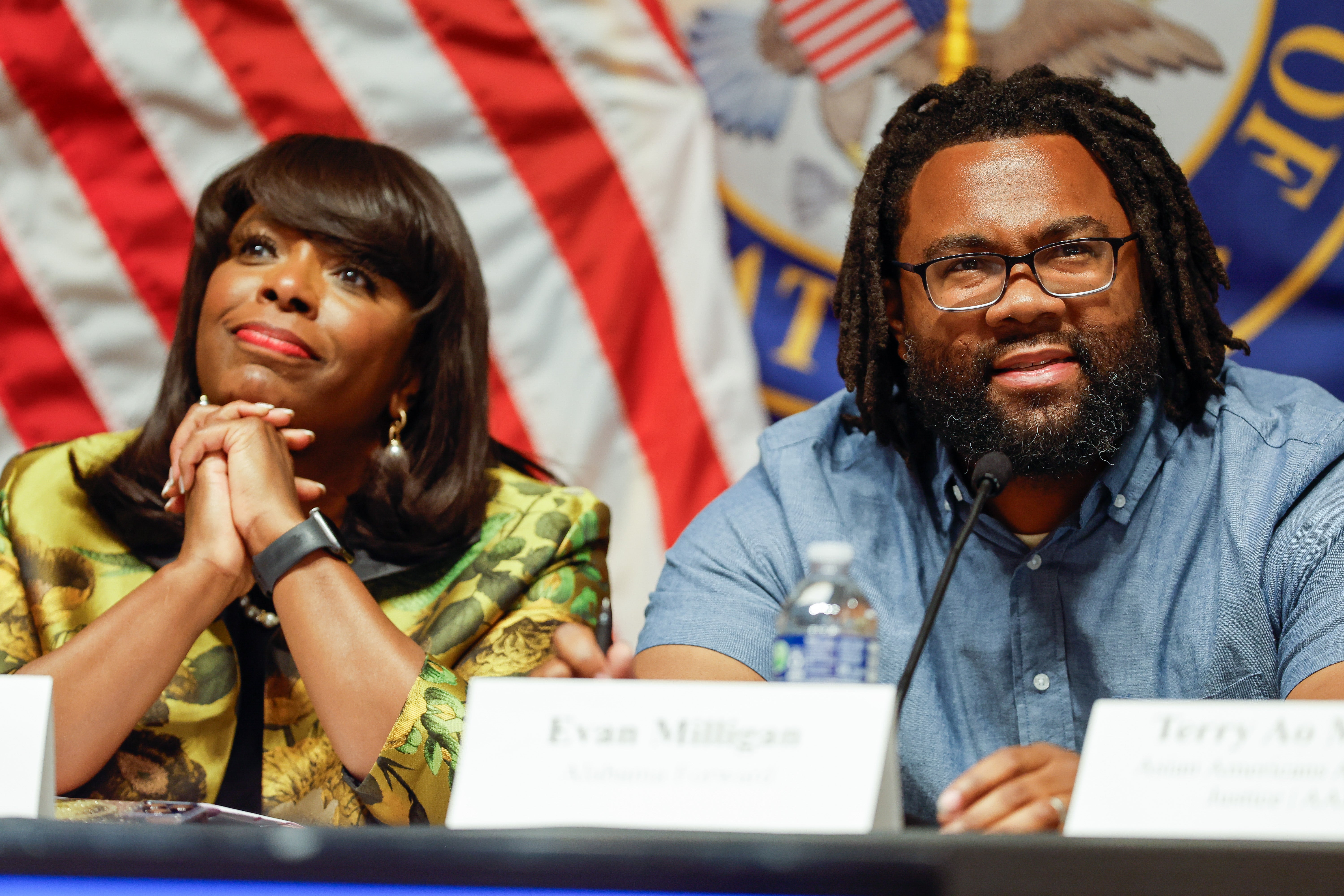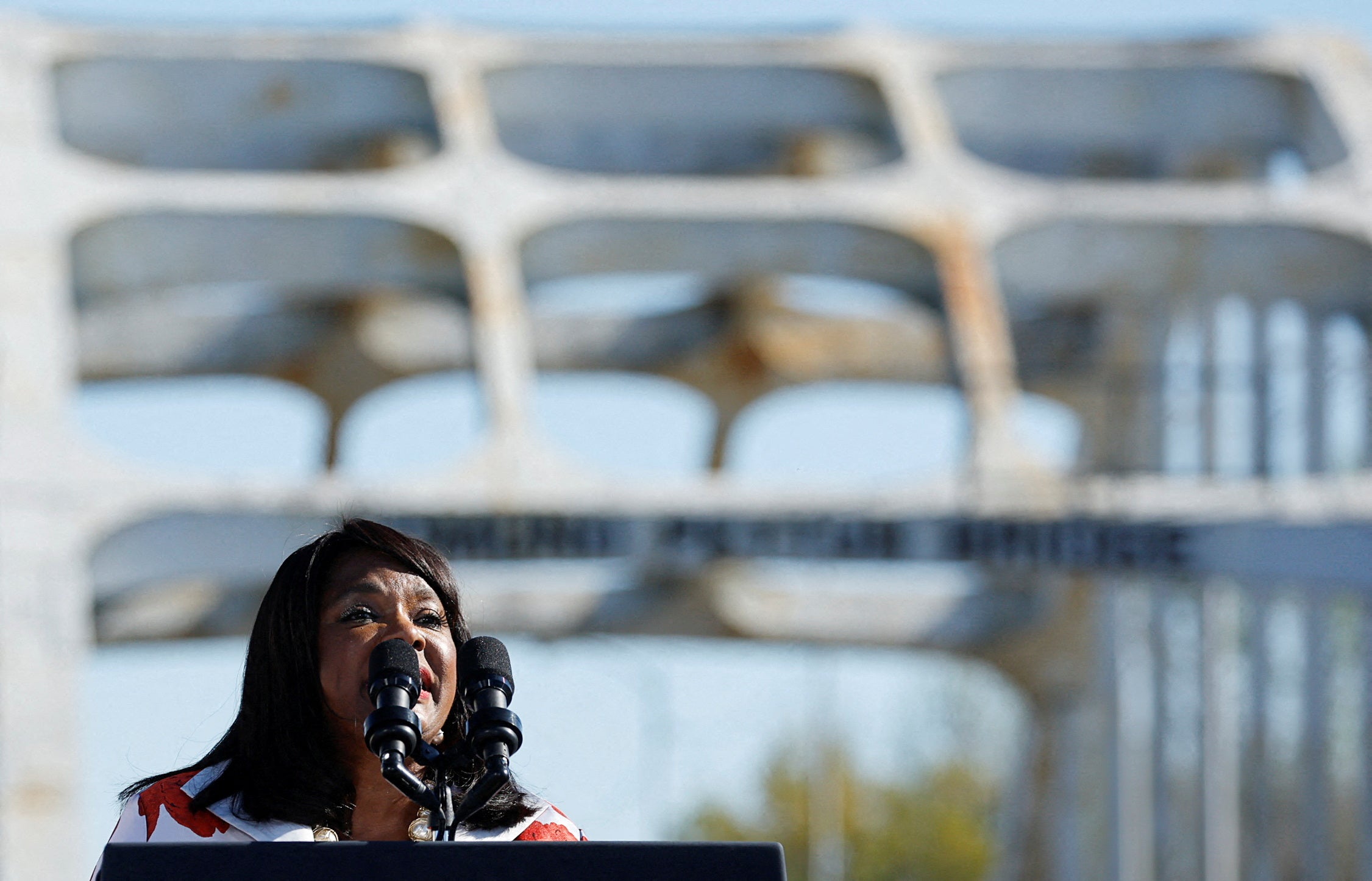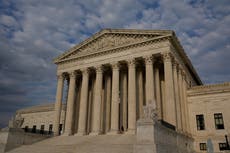Civil rights groups blast Alabama GOP for defying Supreme Court order for second Black congressional district
Republican lawmakers refuse to draw a second majority-Black congressional district despite a ruling from the nation’s highest court
Your support helps us to tell the story
From reproductive rights to climate change to Big Tech, The Independent is on the ground when the story is developing. Whether it's investigating the financials of Elon Musk's pro-Trump PAC or producing our latest documentary, 'The A Word', which shines a light on the American women fighting for reproductive rights, we know how important it is to parse out the facts from the messaging.
At such a critical moment in US history, we need reporters on the ground. Your donation allows us to keep sending journalists to speak to both sides of the story.
The Independent is trusted by Americans across the entire political spectrum. And unlike many other quality news outlets, we choose not to lock Americans out of our reporting and analysis with paywalls. We believe quality journalism should be available to everyone, paid for by those who can afford it.
Your support makes all the difference.The state of Alabama will likely face another legal challenge from civil rights groups after the state’s Republican lawmakers approved another congressional map that, once again, likely discriminates against Black voters and significantly dilutes their voting power.
Last month, in a landmark decision 19 months in the making, the US Supreme Court sided with a lower court ordering the state legislature to go back to the drawing board and rewrite the state’s congressional districts, finding that the current map violates the Voting Rights Act.
That map packed most of the state’s Black residents, who make up more than a quarter of the state’s population, into one single congressional district out of seven.
On 21 July, facing a court-imposed deadline to come up with a second map that adds at least one majority-Black district, Alabama Republicans maintained the status quo, with a map that has only one district in which Black voters in the state, most of whom vote Democratic, have a chance of electing a candidate of their choice.
The plan has one district – currently represented by Democratic US Rep Terry Sewell – with a Black voting age population share of slightly more than 50.6 per cent. The Black voting age population in the other proposed district is 39.9 per cent.
The rest of the state’s Black voters are “cracked” across other districts, significantly diluting their voting power.
Civil rights groups and the plaintiffs in the Supreme Court case of Allen v Milligan condemned the new map, saying that Alabama lawmakers believe they are “above the law”.

“What we are dealing with is a group of lawmakers who are blatantly disregarding not just the Voting Rights Act, but a decision from the US Supreme Court and a court order from the three-judge district court,” they said in a statement.
“Even worse, they continue to ignore constituents’ pleas to ensure the map is fair and instead remain determined to rob Black voters of the representation we deserve. We won’t let that happen,” they added.
During debate this week, Democratic state Rep Juandalynn Givan of Birmingham was shocked that Republican lawmakers “would blatantly flip off” the Supreme Court by rejecting an order for a new map.
Revisions to the map – and a Supreme Court ruling that could spell changes to other racially fragmented congressional maps in other states – appear to have sparked Republican members of Congress into action as the GOP maintains a thin and fractured majority in the House.
House Speaker Kevin McCarthy and Alabama Senator Tommy Tuberville and other members of Alabama’s Republican congressional delegation have talked with state lawmakers about the map plans, according to Republican state House Speaker Nathan Ledbetter, NBC News reported.
Mr McCarthy is concerned about maintaining his House majority, Mr Ledbetter told NBC News.
The plaintiffs – represented by the NAACP Legal Defense Fund and the American Civil Liberties Union, among others – are likely to ignite another legal challenge, if the map advances into law. If the new map is enacted, plaintiffs have until 28 July to file any objections in court.
Stuart Naifeh, a member of the Legal Defense Fund’s litigation team in the Milligan case, told The Independent that Alabama lawmakers were engaged in a “pointless exercise” that has ignored the courts and smacks of racial gerrymandering.

The Voting Rights Act of 1965 was drafted to prevent that kind of race-based dilution of Black voters, particularly in Alabama, a state with a long history of racist violence and discrimination.
At the Supreme Court, attorneys for Alabama argued the opposite – that considering race to redraw political boundaries would mark an unconstitutional consideration of “racial targets” and “race-based sorting” in violation of the 14th Amendment’s equal protection clause.
The justices rejected that argument.
Section 2 of the Voting Rights Act prohibits voting laws and election policies from discriminating on the basis of race. The state’s suggestion that “race should play no role whatsoever” to determine whether redistricting plans violate Section 2 would “rewrite” the law and “overturn decades of settled precedent,” according to the map’s challengers.



Join our commenting forum
Join thought-provoking conversations, follow other Independent readers and see their replies
Comments